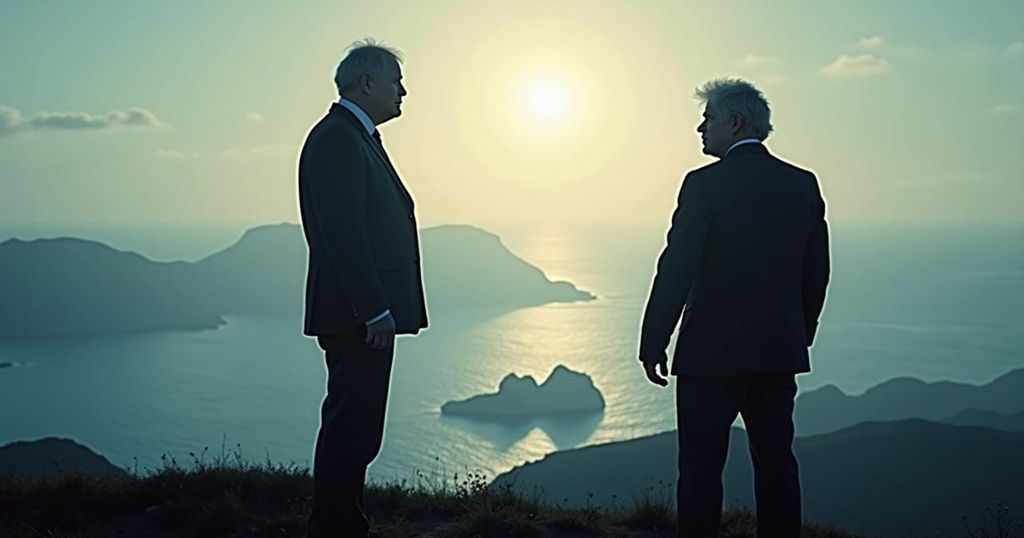The Labour government faces scrutiny following the handover of the Chagos Islands to Mauritius, leading Argentina to assert claims over the Falklands. Prime Minister Sir Keir Starmer’s government plans significant investments in carbon capture technology, aiming to reignite the UK’s industrial base while addressing net zero targets. Additionally, there are discussions surrounding assisted dying and cautious monetary policy approaches amidst these geopolitical challenges.
In recent developments surrounding UK politics, the Labour government, under Prime Minister Sir Keir Starmer, has faced scrutiny regarding the decision to hand back the Chagos Islands to Mauritius, a move that has provoked a response from Argentina concerning the sovereignty of the Falklands. Foreign Secretary Liz Truss has shifted responsibility for the agreement onto former Prime Minister Boris Johnson, stating he initiated the transitional deal when he was in office. This handover included a 99-year lease on a vital military base, prompting Argentina to assert its claim over the Falklands with intentions to take decisive actions in response to this geopolitical shift. Furthermore, the recent announcements also include significant investments in carbon capture technology, with nearly £22 billion allocated to projects in Merseyside and Teesside. Sir Keir Starmer aims to revive the UK’s industrial sectors while contributing to net zero emissions targets. He expressed that the plan represents a renewal in British industry and a commitment to stabilizing the economy amidst existing public financial challenges. Starmer reiterated his pledge to provide a parliamentary vote on assisted dying, promising to maintain a neutral government stance on the issue. Additionally, the Chief Economist of the Bank of England, Huw Pill, has urged caution regarding potential interest rate cuts, implying the necessity for a careful approach amidst fluctuating economic circumstances. Starmer defended the decision to return the Chagos Islands, emphasizing the importance of maintaining a secure military base in the region. He characterized this geopolitical maneuver as critical for both national security and international relations.
The recent geopolitical tensions point to the long-standing disputes over the Falklands and Chagos Islands. The Chagos Islands were originally administered by the UK, serving as a strategic military base for both British and American forces. This background underscores the sensitivity surrounding territorial sovereignty, particularly as Argentina has historically claimed rights over the Falklands since their initial withdrawal from British control in the 19th century. As the Labour government seeks to balance international diplomacy and domestic investment initiatives, the fallout from the Chagos decision poses significant implications for UK-Argentina relations. Furthermore, the investment strategies directed at carbon capture technology highlight the government’s dual focus on climate change initiatives and economic rejuvenation as it navigates a complex post-Brexit landscape.
The recent handover of the Chagos Islands has stirred diplomatic tensions with Argentina, which is leveraging this opportunity to reinforce its claim over the Falklands. As the Labour government embarks on substantial investments in carbon capture technologies, it aims to address climate goals while revitalizing the UK economy. The ongoing dialogue about assisted dying and the cautious approach to monetary policy further reflect the government’s commitment to navigating critical national issues amid significant geopolitical challenges. The situation emphasizes the intricacies of managing both international relations and domestic economic strategies in a rapidly changing political environment.
Original Source: www.independent.co.uk







